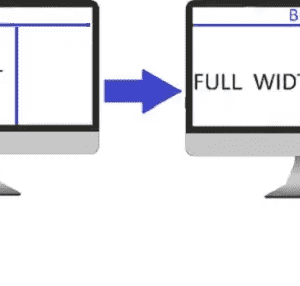Many car owners have often experienced a baffling situation – their car shaking or vibrating when they turn it off.
This seemingly odd phenomenon can make one worry about the potential costly repairs and compromised safety that might result.
However, comprehending the origins of this issue can make a significant difference in addressing it proactively. Key areas of knowledge include understanding the critical car components such as the engine, motor mounts, and exhaust system, which could be potential culprits.
Additionally, understanding how to perform a detailed inspection procedure to pinpoint the problem can assist. Furthermore, discovering the importance of preventive measures could help reduce or even eliminate future occurrences of this problem.
Table of Contents
Understanding Car Vibrations
Pinpointing the Causes of Post-shutdown Vibrations in Cars
After turning a car engine off, you might notice vibrations coming from the vehicle. As any technophile knows, this isn’t a sign of a futuristic self-driving function suddenly kicking in. It’s actually a quintessential mechanical issue, one that ideally demands immediate attention.
Remember, any vibrating, rattling, or shaking in a car are clear indicators of underlying problems. So, what exactly is causing these after-shutdown vibrations? Let’s delve into the world of automotive technology to answer this question.
Engine Mount Failure
The engine mount, a crucial bridge between the car’s engine and chassis, can be a source of these unsettling vibrations. Constructed from rubber and steel, these mounts minimize the engine vibrations transmitted to the vehicle body. However, like any other part, they can wear out or break, leading to persistent vibrations. A visual inspection, coupled with a physical shaking test, can help detect the damage.
Malfunctioning Timing Belts or Chains
The engine timing belt needs to function at an optimal level to prevent annoying vibrations. If this belt or chain is worn out, loose, or damaged, it is bound to disrupt engine functions leading to vibrations. Regular timing belt checks and scheduled replacements can help prevent such scenarios.
Distorted Driveshafts
Although less likely, a bent or unbalanced driveshaft can transfer vibrations to the car. It’s worth mentioning, such issues may not remotely cause vibrations until the vehicle is switched off. A vetted auto technician should investigate this via the application of specialized equipment.
Worn-out or Damaged Spark Plugs
When your spark plugs aren’t at their best, engine misfires can occur, in turn causing your car to shake or vibrate post-shutdown. This is because of the unburnt fuel in one cylinder throwing off the engine’s balance. Thus, regular inspection and change of spark plugs, following the vehicle manufacturer’s recommendation, are essential.
Faulty Serpentine Belt
Serpentine belts connect and power various car components like power steering pump, alternator, A/C compressor, and more. If worn, they can cause significant system-wide vibration and possibly a catastrophic breakdown.

Detailed Inspection Process
Digging Deeper: Additional Culprits Behind Your Shaking Car
Unearthing the root cause of your car’s unnatural shake can often feel like an adrenaline-pumped whodunit. If you’ve ruled out engine mount failure, timing belt or chain issue, distorted drive shafts, worn-out spark plugs, and a faulty serpentine belt, it’s time to dig deeper. You might be dealing with some other, less common culprits.
Damaged or Unbalanced Tires
One primary suspect is damaged or unbalanced tires. A set of wheels bearing disproportionate weight can easily send your vehicle into a shaking frenzy.
Inspect your tires for visible damages and ensure that no one tire is bearing more weight than the others. Consider having your wheels balanced by a professional, if necessary. Remember, uneven tires not only cause shaking but can also lead to premature tire wear and steering system damage.
Corrupt Braking System
A second potential culprit is the brake system. An unbalanced rotor or warped brake disc could be causing your vehicle to shake uncomfortably.
When brakes are applied, the imbalances on the rotor or brake disc will cause the brake pads to vibrate – a vibration strong enough can be felt in the steering and chassis, giving the mystical tremors you experience. Professional help may be required here, as brake systems can be complicated.
Problematic Fuel Intake System
Fuel system issues can also cause trembles in your car. A problematic fuel intake system could lead to an inappropriate mix of air and fuel, causing the engine to misfire.
Misfires are notorious for causing vehicle vibrations. Inspecting the fuel intake system involves checking components such as the mass air flow sensor, oxygen sensor and throttle body for potential faults.
Suspension Issues
Finally, we can’t rule out suspension issues. Damages or wearing out of the struts, shocks, or control arms could lead to a shaking vehicle. These components work together to keep the car steady during a ride, absorbing impacts from the road. A problem with any of these can result in abnormal shaking.
With all these possible root causes, it’s worth stressing this: if your vehicle begins to shake abnormally, don’t ignore it. It’s an indication that something’s gone awry.
While determining the precise cause can be a daunting task, having a guide to walk you through potential triggers can be a real game-changer. Remember, sometimes the issue might be beyond what a basic digital multimeter can diagnose, and that’s when professional intervention becomes necessary.

Taking Preventive Measures
Continuing with the preventive measures to avoid the unwelcome phenomenon of car shake after turning it off, let’s delve more into some yet untouched, and often overlooked areas.
First, contemplate the idea of maintaining Wheel Alignment. If wheels become misaligned due to road conditions, such as hitting a pothole or a curb, clash with another vehicle or due to wear and tear, it can lead to the shaking phenomenon. Therefore, annual checks and proper realignment by professional experts protect the vehicle from awkward shivers.
Secondly, consider the hard-working Drive Axles. An axle with abundant wear or damage can be primary contributors to the shake. Regular inspection and timely replacements by qualified service providers should be integrated into the car’s maintenance schedule.
Moreover, the Exhaust System is an integral part of the car that affects its performance and hence, the overall experience. A dysfunctional exhaust system may also lead to the car shivering when turned off. Scheduling an annual exhaust system checkup and ensuring good health is a preventive measure tech enthusiasts should not miss.
Another big factor is the Flywheel, a crucial part of the clutch. When it fails, the car buzzes when the engine slows down. Hence, regular check-ups and the repair of anomalies detected therein can prevent the shaking.
Vehicle suspension components such as the Sway Bars, when damaged, lead to the car shaking. Maintaining their health and checking for symptoms of life-end, like loose parts, irregular tire wear, or weird noises, can prevent the issue.
Further, it’s essential to monitor your car’s Radiator Fan. If it’s malfunctioning, the car may vibrate when it’s turned off. Regular checks will ensure it’s in working order.
These preventive actions, complemented with a disciplined regimen of regular oil changes, good quality fuel use, keeping the tires inflated to the correct pressure, and following the manufacturer’s maintenance schedule, can avoid the shivering.
While automating seems to be the go-to option for most tech enthusiasts, certain tasks might still require human touch, and maintenance of your vehicle is a perfect example.
Connecting with automotive technology and staying knowledgeable about your car’s overall health can help preempt these shaking phenomena and ensure a smooth execution of your vehicle’s operations after prompt turn-offs. Remember, prevention is not just better but also likely cheaper than repair.

Knowledge is the first line of defense. By understanding each element of your car that could lead to this issue, you empower yourself to not only spot the signs but also take action before the problem escalates.
Additionally, performing regular inspections using the knowledge provided is beneficial in spotting warning signs early, thereby averting potential damage.
Lastly, preventive maintenance such as periodic checks and regular servicing are indispensable parts of car ownership. Ingraining these preventive measures into your routine goes a long way in ensuring that your car performs optimally, reducing the chances of you encountering a jittery shake off in your drive.







